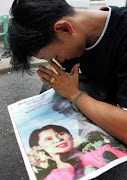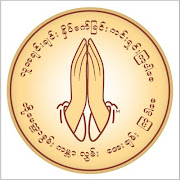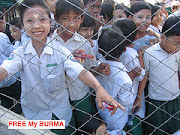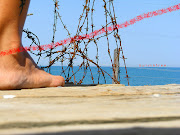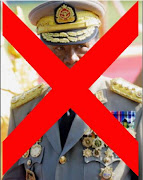Friday, October 1, 2010
Myanmar, General Debate, 65th Session, 28 September 2010
Posted by
Arakanbrand
at
3:06 AM
0
comments
![]()
Thursday, June 19, 2008
Wednesday, June 18, 2008
Happy Birthday (Mother Day)
Dear Mother,
Happy Birthday!!!!!!!
I pray for you to...
Be Peace at All........................
Be Freedom from All........................
By your Silly Son,
Posted by
Arakanbrand
at
5:48 AM
0
comments
![]()
Thursday, June 12, 2008
Should Be War
| |||
The Case for Inhumane Intervention
June 11, 2008
When a cyclone hit Burma (alias Myanmar) recently, the repressive regime that rules that country dawdled for weeks before allowing international relief teams to enter the country. "Aid agencies estimate more than one million storm survivors, mostly in the delta, still need acute help," reports the Canadian Broadcasting Corp. "Cyclone Nargis killed more than 78,000 people. . . . More than 58,000 are still missing and unaccounted for."
Madeleine Albright, the secretary of state during President Clinton's second term, blames George W. Bush. Before he came along, she claims in a New York Times op-ed piece, "diplomats and foreign policy experts" were moving toward "an integrated world system" in which "the international community would recognize a responsibility to override sovereignty in emergency situations--to prevent ethnic cleansing or genocide, arrest war criminals, restore democracy or provide disaster relief when national governments were either unable or unwilling to do so":
During the 1990s, certain precedents were created. The administration of George H.W. Bush intervened to prevent famine in Somalia and to aid Kurds in northern Iraq; the Clinton administration returned an elected leader to power in Haiti; NATO ended the war in Bosnia and stopped Slobodan Milosevic's campaign of terror in Kosovo; the British halted a civil war in Sierra Leone; and the United Nations authorized life-saving missions in East Timor and elsewhere.
Three guesses as to what caused this brilliant plan to collapse:
The invasion of Iraq, with the administration's grandiose rhetoric about pre-emption, was another matter, however. It generated a negative reaction that has weakened support for cross-border interventions even for worthy purposes. Governments, especially in the developing world, are now determined to preserve the principle of sovereignty, even when the human costs of doing so are high.
Thus, Myanmar's leaders have been shielded from the repercussions of their outrageous actions.
What principle, exactly, is Albright putting forward here? The 1990s interventions she cites favorably are all cases in which, in her account, the intervening power was motivated by humanitarian concerns rather than national interest. But she also approves of the liberation of Afghanistan because it was "clearly motivated by self-defense."
On what basis, then, does she object to the liberation of Iraq? It was both a humanitarian intervention (toppling one of the world's most brutal dictators) and an act of self-defense ("the administration's grandiose rhetoric about pre-emption" is merely a dysphemistic way of saying this).
Is Albright's idea that intervention is acceptable for reasons of humanitarianism or national interest but not both? Maybe. That would explain the Clinton administration's intervention in Iraq, which Albright does not mention in this article. Although the administration did not take action to remove Saddam Hussein from power, it did bomb the country and support strict U.N. sanctions.
In 1996, as the hard-left radio show "Democracy Now!" recounted some years later, Albright, then ambassador to the U.N., gave an interview to CBS's "60 Minutes":
Correspondent Leslie Stahl said to Albright, "We have heard that a half million children have died. I mean, that"s more children than died in Hiroshima. And--and you know, is the price worth it?"
Madeline Albright replied "I think this is a very hard choice, but the price--we think the price is worth it."
That the sanctions killed half a million Iraqi children was almost certainly a pro-Saddam canard. But Albright did not dispute the premise. Instead, she defended as "worth it" the policy that purportedly killed several times as many people as are believed to have perished in this year's Burma cyclone. You can see why her New York Times op-ed does not reprise this case for inhumane intervention.
Even if Albright is unable to articulate the principles that guided the Clinton administration's foreign policy, maybe she is right that it was better than its successor's. Let us test her specific claim that the Bush administration's policy to Iraq is to blame for the intransigence of the Burmese junta. Did that regime behave differently when Clinton was in the White House and Albright at Foggy Bottom?
Nope. This is an excerpt from the State Department's 1999 Country Reports on Human Rights Practices:
Burma continued to be ruled by a highly authoritarian military regime. Repressive military governments dominated by members of the majority Burman ethnic group have ruled the ethnically Burman central regions and some ethnic-minority areas continuously since 1962, when a coup led by General Ne Win overthrew an elected civilian government. . . .
The Government's extremely poor human rights record and longstanding severe repression of its citizens continued during the year. Citizens continued to live subject at any time and without appeal to the arbitrary and sometimes brutal dictates of the military regime. Citizens did not have the right to change their government. There continued to be credible reports, particularly in ethnic minority-dominated areas, that soldiers committed serious human rights abuses, including extrajudicial killings and rape. Disappearances continued, and members of the security forces tortured, beat, and otherwise abused detainees.
The Clinton-Albright foreign policy was a failure even on its own terms (or at least on the terms she sets forth in today's op-ed). And indeed, why would you expect U.S. humanitarian interventions against repressive regimes in Haiti and the Balkans to make the Burmese junta any more willing to risk its own power to help the people over whom it rules? Albright's position is simply incoherent.
Posted by
Arakanbrand
at
6:42 AM
0
comments
![]()
Friday, June 6, 2008
Oral Statement - Burma
6/06/2008
Situation of Human Rights in BURMA
Mr Chairman,
The International Federation for Human Rights (FIDH) maintains its serious concerns regarding the institutionally entrenched, systematic and widespread violations of human rights occurring in Burma.
ORAL STATEMENT
Situation of Human Rights in BURMA
Mr Chairman,
The International Federation for Human Rights (FIDH) maintains its serious concerns regarding the institutionally entrenched, systematic and widespread violations of human rights occurring in Burma.
Since the last session of the Human Rights Council, the military junta not only has not undertaken any action in favour of national reconciliation, but on the contrary has tried to legitimize its grip on power by holding a national “referendum” on a draft constitution.
The referendum was held on 10 May 2008 in a context of humanitarian crisis, following the cyclone “Nargis”. The FIDH strongly condemns the way in which the referendum was carried out, in a climate of fear, intimidation and repression – which prevented any free debate about the draft.
Following the cyclone “Nargis”, and despite the enormous needs of more than 2 million persons, the military regime blocked foreign aid for more than 2 weeks, in complete disregard of its obligation and responsibility to protect the Burmese population. Such a delay has been endangering the life and health of hundreds of thousands of persons.
This is an additional element in the long-established list of serious human rights violations in which the military authorities have been engaging.
Consequently,
The FIDH strongly urges the Human Rights Council to adopt a resolution
Urging the authorities to cooperate fully with the Human Rights Council’s special procedures and mechanisms, and in particular to invite the Special Rapporteur on Human Rights in Myanmar, Mr. Thomás Ojea Quintana.
Calling the junta to establish and follow-up an inclusive political dialogue in the country.
Condemning the referendum process and rejecting its results, as they constitute a flagrant violation of international standards on free and fair electoral process.
The resolution should also call upon the Special Rapporteur to visit Burma and include in his report an assessment of the human rights violations resulting from the management of humanitarian crisis by the military regime, as well as the violations perpetrated in connection with the referendum.
In addition, the resolution should establish concrete benchmarks for the political process in Burma, and call for the strict respect of international standards, i.a.:
The immediate release of Daw Aung San Suu Kyi and all other political prisoners and prisoners of freedom of expression, as well as human rights activists.
The immediate lift of any kind of restrictions to foreign humanitarian aid, including UN agencies and NGOs.
The resolution should finally call the Security Council to adopt a resolution on Burma calling for immediate concrete steps from the junta on the issues just raised, making reference to the regime’s responsibility to protect.
Thank you very much for your attention.
Posted by
Arakanbrand
at
8:21 AM
0
comments
![]()
First Step for Myanmar
Friday June 6, 11:48 PM
U.N. envoy pushes Myanmar on prisoners
GENEVA (Reuters) - The United Nations human rights expert for Myanmar urged the military junta on Friday to investigate reports that its soldiers shot dead a number of prison inmates during the recent devastating cyclone Nargis.Tomas Ojea Quintana, who reports to the world body's Human Rights Council, also called for aid to be allowed to flow freely to victims of the storm and said he had heard that critics of a referendum held in its wake had been arrested.
The Argentine lawyer, making his first report to the Council, said some 1,000 prisoners at the town of Insein had been forced inside a hall after their jail's zinc roofs were torn off in the storm on May 2, and many panicked."In order to control the situation, it is reported that soldiers and riot police were called in and opened fire on the prisoners in that area. A number of prisoners were allegedly killed during the operation," his 16-page report said.
A Thailand-based rights group said at the time soldiers and police had killed 36 prisoners to quell a riot. Ojea Quintana did not cite any total for the deaths.
"The authorities should conduct a thorough and transparent investigation to clarify the facts and identify the perpetrators of those arbitrary killings," he said.
Ojea Quintana urged the Myanmar authorities to honour an agreement with the U.N. to "allow international humanitarian workers and supplies unhindered access to the country and particularly to the areas affected" by Nargis.
FALSE PICTURE
On Friday, the Myanmar military accused "unscrupulous" citizens and foreign media of giving a false picture of the effects of the cyclone, which left 134,000 dead or missing and 2.4 million people in desperate need of help.
Dozens of Irrawaddy delta villages, some visited by Reuters, have yet to receive any relief assistance since the storm.
Ojea Quintana, who succeeded Brazilian lawyer Paulo Sergio Pinheiro as Myanmar investigator on May 1, said people reported detained for protesting over the constitutional referendum, were among 1,900 political prisoners in the former Burma.
These included monks rounded up after protests last September. All should be freed, he said, starting with Aung San Suu Kyi, opposition leader and Nobel laureate under house arrest or in prison for nearly 13 of the last 18 years.
"Given her responsibility as National League for Democracy (NLD) General Secretary, her arrest affects the political rights of many other members of the NLD and of the people of Myanmar," his report added.
Ojea Quintana noted that his predecessor Pinheiro had reported after a rare visit to Myanmar last November that at least 31 people had died in the crackdown on monk-led protests.
The new investigator urged the authorities in Yangon to set up a mechanism to trace people reported missing since then and voiced hope he would also be allowed to visit the country soon.
In March, the Council unanimously condemned Myanmar for what it called "systematic violations" of fundamental freedoms.
(Reporting by Stephanie Nebehay; Editing by Robert Evans)
Posted by
Arakanbrand
at
8:06 AM
0
comments
![]()
Friday, May 30, 2008
President Bush Disappointed by Burmese Regime's Extension of Aung San Suu Kyi's House Arrest
Source: The White House, USA
Published Friday, 30 May, 2008 - 13:25
I am deeply troubled by the Burmese regime's extension of National League for Democracy General Secretary and Nobel Peace Prize winner Aung San Suu Kyi's house arrest on May 27. Aung San Suu Kyi's current house arrest dates back to May 2003, when she was detained following the murderous assault by regime-sponsored thugs on her motorcade in Depayin. The United States calls upon the regime to release all political prisoners in Burma and begin a genuine dialogue with Aung San Suu Kyi, the National League for Democracy, and other democratic and ethnic minority groups on a transition to democracy.
The United States will continue to help the people of Burma recover from the devastation of Cyclone Nargis and will continue to support the Burmese people's long term struggle for freedom. Laura and I look forward to the day when the people of Burma know true liberty and democracy.
Posted by
Arakanbrand
at
7:03 AM
0
comments
![]()
Sunday, May 25, 2008
Mr. Bishow Parajuli
| May 25, 2008 |  |
| UN appoints new head of Myanmar operations | |
| YANGON - THE United Nations announced on Sunday the appointment of diplomat Bishow Parajuli as its country head for Myanmar, replacing Charles Petrie who was abruptly expelled by the junta last year. The newly-appointed representative of the UN Development Programme (UNDP) will coordinate the work of all UN agencies in Myanmar, spokesman Aye Win told reporters. The appointment of Parajuli, a Nepalese national who previously served as director of the UN's World Food Programme in Egypt, was announced in the junta's daily newspaper, the New Light of Myanmar. 'Mr Bishow Parajuli ... presented his credentials to U Nyan Win, Minister for Foreign Affairs,' the newspaper said. The junta announced in November that it would not renew Petrie's mission, leaving the isolated country without a permanent UN head for six months. Mr Petrie's removal came during international pressure on the junta to reform after it violently crushed mass anti-government protests in late September, killing at least 31 people, the UN has estimated. The junta announced his expulsion after Mr Petrie released a statement warning of a 'deteriorating humanitarian situation' in the country formerly known as Burma. Mr Parajuli, who has 25 years experience managing humanitarian and development programmes, was appointed after long negotiations between the UN and the junta on who would replace Mr Petrie. 'This is somebody that the Burmese military is comfortable with,' said Myanmar analyst Aung Naing Oo. 'The Burmese military didn't want another Charles Petrie, that's for sure.' The junta was pushing for a non-Western resident representative and the UN wanted a representative with enough experience to fill the job, analysts said. 'On paper, he (Parajuli) sounds pretty good - being Asian and experienced with the World Food Programme,' said Human Rights Watch's Dave Mathieson. 'He's got an enormous challenge ahead of him to coordinate relief efforts after the cyclone, reconstruction and to completely rehabilitate operations of the UN inside Burma and keep good relations' with the junta. UN agencies and about 50 countries opened a donor conference in Yangon on Sunday to raise money for Myanmar after Cyclone Nargis. Delegates were expected to press the junta to make good on a promise to allow in foreign aid workers. The May 2-3 storm left more than 133,000 people dead or missing. The United Nations says less than half of the 2.4 million people needing emergency international aid have received any assistance. -- AFP
| |
Posted by
Arakanbrand
at
8:02 AM
0
comments
![]()





